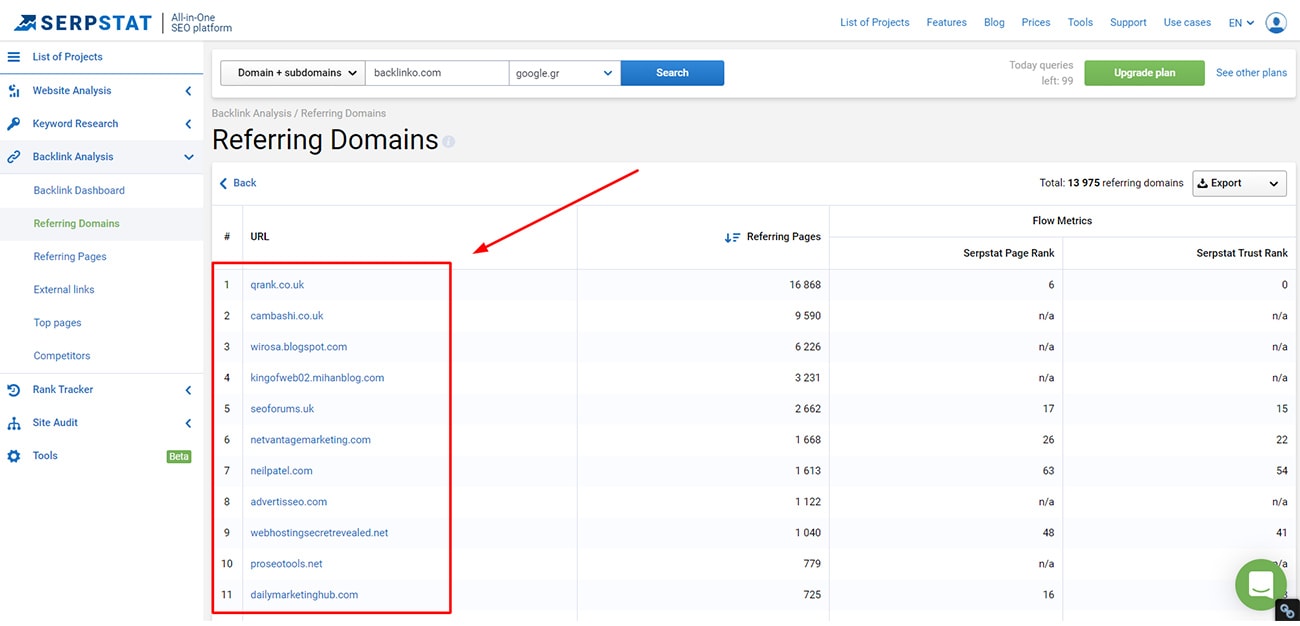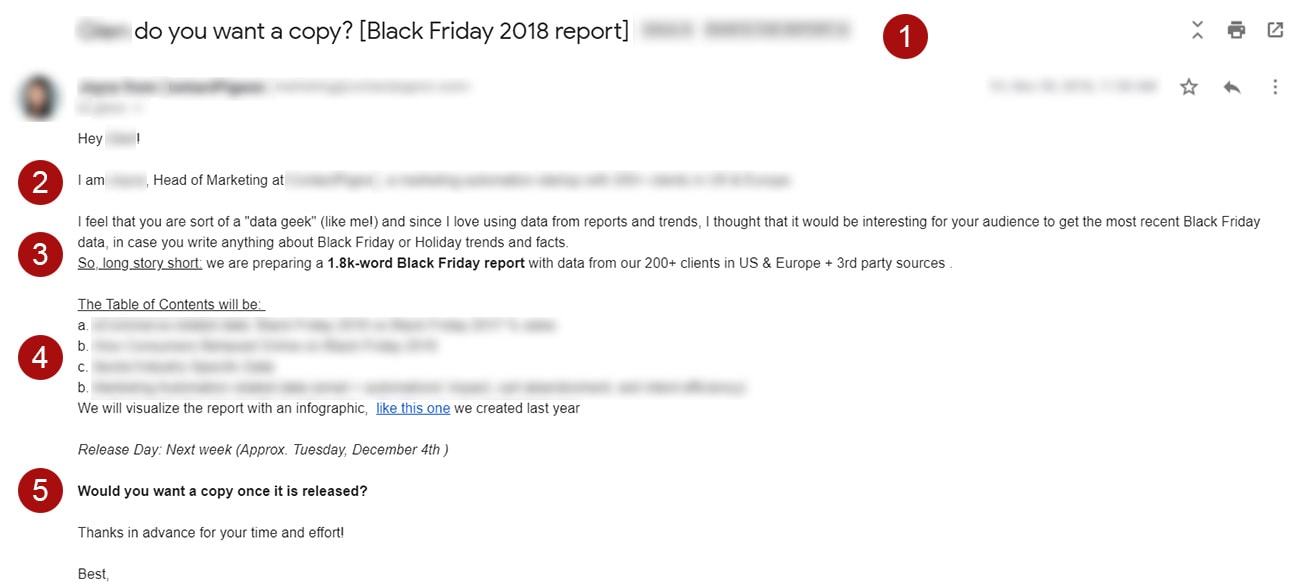If you think that guest blogging is all about writing a 500-word article, stuffing it with your keywords, and publishing it on the first blog you come across, you’re wrong. This is not how it works in 2021.
Instead of the quantity of backlinks, you need to focus on their quality. To increase brand awareness, online reputation, and website visits through guest blogging, you need to write quality articles and publish them on respected sites in your niche. Above all, you need to insert your links naturally.
Here are a few tips to apply.
Find Valuable Guest Blogging Opportunities

Identifying the right guest blogging opportunities is the backbone of your link building strategy. Contributing to low-quality or irrelevant sites may harm your online authority, affect your organic rankings, and drive unrelated visits to your site. Here are a few ways to avoid that.
Research competitors
Your competitors’ backlinks may be a treasure trove of potential guest blogging opportunities. In other words, you want to analyze their backlinks and see what quality sites are linking back to their content. There are many tools that may help you, including Moz Link Explorer, Serpstat Backlink Analysis Tool, SEMrush, etc. You just need to enter competitors’ URLs and you’ll get the information needed.
When doing competitor backlink analysis, it’s always a good idea to create a few columns in your link building spreadsheet, where you would enter the information about the page containing a competitor’s backlink, their email address, and their “become a contributor” page.
Conduct advanced Google searches
When prospecting for fresh guest blogging opportunities, Google searches should be your starting point. Just entering a relevant keyword won’t be enough to get a list of valuable sites. According to the Link Building Guide For Travel Websites, you should combine your keywords with Google’s advanced search operators. For instance, if you’re in the travel sector, some related keywords may be hotels, tourist destinations, budget travel, and so forth. Therefore, to find relevant blogs, google something like “tourist destination” OR “tourist destination” intitle:”Write for Us” OR “Guest Post Guidelines.” Obviously, you will get relevant travel sites that accept guest articles.
Refine your Guest Blogging Opportunities

Not every site you find will be equally relevant. To find high-quality guest sites and eliminate low-quality ones, you need to analyze your list of guest blogging opportunities. Here are a few criteria to keep in mind:
● A site’s domain authority – this is a search engine ranking score created by Moz that tells how high a site can rank in the SERPs. The score ranges from 0 to 100 and, logically, a higher score means higher rankings. You should look for the sites with the DA of 50 and higher, as obtaining a link from them will boost your industry credibility and rankings.
● A site’s relevance – check whether the site is in the same or similar industry. Do they address similar topics? Most importantly, do they target the same audiences?
● The quality of content – audit their website content from a reader’s viewpoint. Are the posts they publish informative and helpful? If the content is created for the sakes of SEO and it’s spammy and keyword-rich, you should run away.
● Contributor’s bio – check whether you will be allowed to present yourself and your company in the bio.
● Engagement – how engaged are their visitors? Do they share, like, and comment on their posts regularly?
Choose Your Content Ideas
Now, when you know what sites you want to contribute to, you should find the right topics to pitch. You need to research the site well to see what sections and categories they have on their blog and what topics they’re interested in.
Next, identify the hottest topics that may be relevant to the host blog. Analyze current trends and news in your industry and craft a list of catchy and authentic headlines. There are many tools that may help you, such as BuzzSumo. You just need to enter a keyword and the tool will provide you with a list of trending articles related to it. You can see the engagement each post generates on social, how many links it earns, how many shares it gets, as well as its evergreen score.
Craft your Outreach Email Strategically

If you believe you’re the only one reaching out to a blogger, you’re wrong. They have hundreds of similar emails every day. And, to grab their attention and stand out, you first need to build strong relationships with them. Before sending your email pitch, you should find them on social networks. Like their posts, post valuable comments there, and share their content with your audience. Get a blogger to notice you.
When it comes to sending them your guest article ideas, you will first need to identify their email addresses. You can do so manually, by analyzing their contact section. Many marketers decide to automate these processes by using link prospecting tools like Dibz. Such tools will not only analyze the relevance of guest blogging opportunities, but also scrape their emails automatically.
When sending an email, there are a few things to know:
● Use your personal email address to humanize your email.
● Write a catchy and informative subject line that helps you stand out in a blogger’s crowded inbox.
● Greet a blogger politely and introduce yourself in a few sentences.
● Refer to the content on a blogger’s site to say why you like it.
● Inform a blogger about what you’re writing about.
● Send them a few intriguing article ideas and ask them for their opinions.
● Provide examples and links to your blog posts or guest articles. You want to prove that you’re an authoritative resource.
Write Valuable Content
Identifying a quality link building opportunity is just half the job done. The other half is writing a valuable piece of content.
When a blogger approves a topic, you should invest lots of time and effort into writing your blog post strategically.
First, pay attention to the guest blogging guidelines and adhere to them while writing. If there are no specific guidelines, check the posts they’ve already published and see what tone of voice and writing style a blogger prefers.
Just like your blog articles, guest posts need to deliver value to your readers. Make them highly informative and helpful. Each blog post should be written organically, in a language that is simple and understandable to a reader. Look for recent research studies, statistics, and data that will back your statements up.
Sure, you need to optimize your content for search engines. You should provide a link to your website, but you need to do so organically. Avoid keyword-rich parts and eliminate fluff text. A keyword and anchor text need to be inserted naturally. You don’t need to stick to exact-match keywords. Use long-tail and conversational ones that fit the context. Never use keywords like “click here” or “follow this link.” Also, instead of linking to your product pages or your homepage, why not link to your topically-related blog post? Not only will you earn a link and drive traffic to your site, but you will also deliver value to your readers.
Before submitting your blog post, you should edit it carefully. Check whether all links work and make sure that there are no grammar or spelling errors. If a blogger needs to waste time removing your spelling errors, they will decide not to publish your article.
Measure your Performance
Guest blogging is not about improving your rankings overnight. It takes time to build a solid backlink portfolio and position yourself as a credible guest blogger. Sure, to maximize your guest blogging results, you need to track your performance regularly. For starters, use Google Analytics to see how guest blogging impacts your SEO performance.
This way, you will be able to see what strategies work for you. Most importantly, you will get the most out of your guest blogging efforts. In addition to building natural links, this tactic will also help you position yourself as an authoritative industry source, boost brand awareness, gain relevant traffic, and build stronger relationships with audiences.
Author Bio: My name is Raul, editor in chief at Technivorz blog. I have a lot to say about innovations in all aspects of digital technology and online marketing. You can reach me out on Twitter.





